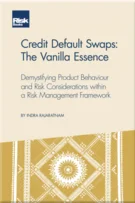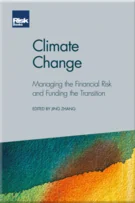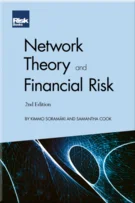Conduct, Not ‘Conduct Risk’
Conduct, Not ‘Conduct Risk’
Introduction
Operational Risk in Four Letters
An Invisible Framework
Small is Beautiful in OpRisk Management
The Business Value of ORM
How to Minimise ‘People Risk’
The Missing Piece
Risk Appetite and Framework
From Russian Roulette to Overcautious Decision-making
The Importance of Preventive KRIs
How to Build Preventive Key Risk Indicators
Unlocking KRIs
Six Steps for Preventive KRIs
Have Your Cake and Eat It
Conduct, Not ‘Conduct Risk’
How to Manage Incentives
Is Reputation Risk Overstated?
What Regulators Want
Conduct & Culture
OpRisk Takes Forward Steps at OpRisk Europe 2014
Modern Scenario Analysis
The Rogue’s Path
Rogue Trading No Training: The Connections
What Brexit Teaches OpRisk
OpRisk Survey Shows the Insidious Effects of Political Risk
Discarding the AMA Could Become a Source of OpRisk
UCL Research Shows that SMA Reforms Introduces Capital Instability and Discourages Risk Management
Memo to Bank CEOs: Treat OpRisk with More Respect
Don’t Let the SMA Kill OpRisk Modelling
In the aftermath of the financial crisis, and at the height of the PPI mis-selling scandal, the former UK Financial Services Authority (FSA) was broken up, giving way to the Financial Conduct Authority (FCA), which is responsible for monitoring the financial services industry with regards to business conduct. Prudential questions are now directed by the Prudential Regulation Authority (PRA), part of the Bank of England. Eighteen months on, the details and motives of the FCA’s approach to conduct issues are a vital consideration for UK regulated firms.
The orthodoxy in risk management is that damage to reputation is not a risk but a consequence. The same applies to conduct risk. Even though in its early publications the FCA referred to “conduct risk”, its view has now progressed to recognise the concept of conduct rather than “conduct risk”.
This is not just a semantic issue. Treating conduct as an issue ultimately giving rise to adverse impacts, rather than being a risk category in its own right, bears important consequences in the way it is organised and managed. In particular, crystallised conduct issues can arise from incidents classified in any of the seven Basel
Copyright Infopro Digital Limited. All rights reserved.
As outlined in our terms and conditions, https://www.infopro-digital.com/terms-and-conditions/subscriptions/ (point 2.4), printing is limited to a single copy.
If you would like to purchase additional rights please email info@risk.net
Copyright Infopro Digital Limited. All rights reserved.
You may share this content using our article tools. As outlined in our terms and conditions, https://www.infopro-digital.com/terms-and-conditions/subscriptions/ (clause 2.4), an Authorised User may only make one copy of the materials for their own personal use. You must also comply with the restrictions in clause 2.5.
If you would like to purchase additional rights please email info@risk.net









